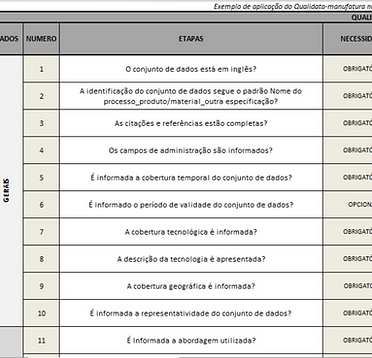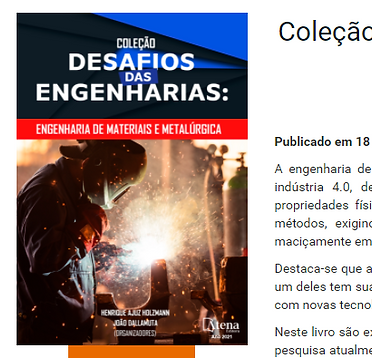top of page
BioCalc - Decarbonization Credit Calculator for Solid Biofuels

This tool is the result of CNPq call no. 26/2021 401237/2022-2 and is a calculator for accounting for Energy-Environmental Efficiency for solid biofuels (Pellets or Briquettes). The calculation instrument was developed in accordance with the methodological framework established in RenovaBio and Renovacalc, based on the Life Cycle Assessment (LCA) according to ISO 14040/14044 standards. The design of the production and transportation systems for solid biofuels was based on the publications by Silva et al. (2022), Farrapo Jr et al. (2023) and Matheus et al. (2024).
BioCalc - Air Depollution Credit Calculator for Solid Biofuels

This tool is the result of CNPq Call No. 26/2021 401237/2022-2 and consists of a calculator for accounting air depollution credits through the use of solid biofuels (Pellets or Briquettes), focusing on the impact category of Particulate Matter Formation. The calculation instrument was developed based on the version of the BioCalc tool created for carbon credit accounting. The design of the solid biofuel production and transportation systems was based on the publications by Silva et al. (2022), Farrapo Jr et al. (2023), and Matheus et al. (2024). The calculation of damage impacts on human health was based on characterization factors from Van Zelm et al. (2016), Fantke et al. (2016, 2017), Oberschelp et al. (2020), and UNEP and SETAC (2016), considering, whenever possible, the Brazilian context.

Book: Life Cycle Engineering and Management of Products
Organized by Prof. Dr. Diogo A. Lopes Silva from the EngS Group along with other researchers, this book presents the role of Engineering and Life Cycle Management of products (goods, processes, and services) and their contributions to corporate environmental sustainability and the circular economy. It addresses the main techniques, tools, systems, and practices for improving the environmental performance of products and services throughout their life cycles.
The book presents these topics across 13 chapters, covering both basic and advanced theories. Additionally, all chapters provide examples of real and hypothetical case studies to support the discussion, assimilation of theoretical content, and its contextualization within the real-world business environment. The chapters are also complemented by quantitative exercises. Click the link to access the book

Book: Engenharia e gestão do ciclo de vida de produtos
Organized by Prof. Dr. Diogo A. Lopes Silva from the EngS Group along with other researchers, the book, published in Portuguese by Altabooks, presents the role of Engineering and Life Cycle Management of products and their contributions to corporate environmental sustainability and the circular economy.
This book is the Portuguese version of the work first published by Springer in 2021. It features 13 chapters with theory and examples of real and hypothetical case studies for discussion and content assimilation. The chapters are complemented by quantitative exercises

Quality-manufacturing checklist with Servqual indicator
This worksheet results from the CNPq project 371437/2020-2. It is a checklist to assess the quality of a manufacturing dataset based on the application of the ServQual scale, based on the differences between expectations (from data providers) and perceptions (from external reviewers). It can also access this worksheet in the publication made to Revista LALCA.
Article: Qualidata-Manufacturing: Requirements Proposal and Quality Assessment of Manufacturing Process Inventory Datasets
Link: http://lalca.acv.ibict.br/lalca/article/view/5539

Quality Checklist
This worksheet results from the CNPq project 406017/2018-2. It is a checklist for critical analysis of compliance with the Qualidata Guide requirements in LCA datasets. It facilitates the filling and identification of requirements that were met or not by the dataset. In addition, this worksheet allows comments to be made regarding why a requirement is not met and descriptions arising from their fulfillment. Click the button to download.

Mini-course: Introduction to life cycle thinking
The course includes a series of video lessons and materials in .pdf for access and download and assessments between each of its 04 modules (Introduction, Public Policies, Business, Sustainable Lifestyles), with issuing a certificate. The mini-course is online and free, was conceived by The Life Cycle Initiative, and is even available in Portuguese. The course was translated in 2020 into our language under the coordination and participation of members of EngS - Engenharia da Sustentabilidade and other colleagues. Click on the link to find out more.

GARIBOT: Garibot and the world of waste
It is a children's educational game that addresses the recycling of electronic waste (WEEE), according to PROEX process 23112.015953/2020-62. Compatible with Google Chrome, Mozilla Firefox, and Edge browsers. I can use it in the classroom for Elementary School I students.

e-coLab : Sustainable guide
It is a guide for applying sustainable practices in the teaching laboratories of educational institutions. Such practices seek to reduce the consumption of materials and energy to balance the activities carried out in the laboratory and the environment (PROEX Project 23112.015951/2020-73).

Book Chapter - Engineering Challenges Collection: Materials Engineering
This book chapter shows a case related to the study of thermal properties of composites containing biodegradable polymer and materials from renewable sources, such as jute and cotton fibers, molded by the hot compression method.
PAIVA, JANE MARIA FAULSTICH DE; Maciel, Cristiane Carla ; MAIA, AMANDA ALVES DOMINGOS ; Fernandes, Anderson Pires ; Castanho, Maria Natalia . EVALUATION OF THERMAL PROPERTIES OF PBAT MATRIX COMPOSITES REINFORCED WITH DIFFERENT JUTE AND COTTON FABRICS. Engineering challenges collection: Materials and metallurgical engineering. 1d.: Athena Editora, 2021, v. , for. 1-9.

Book Chapter 1 - Production engineering: new frontiers, solutions, problems and challenges
The book highlights the importance of Production Engineering for the processes of building methodologies aiming to pursue visions of Sustainability for our Society. In practical terms, these contextual essentialities are present in each chapter that make up the book. In chapter 1, the Composites of acrylonitrile-butadiene-styrene (ABS) recycled with vegetable fibers aiming at the circular economy, by the authors: Meire Noriko Hosokawa, Karen de Souza do Prado, Amanda Pena Rodrigues Coelho, Christian Cuello Barrios, and Jane Maria Faulstich de Paiva.

Datasets - SICV Brasil
The EngS Group contributed to the National Life Cycle Inventory Database (SICV Brazil), managed by IBICT - Brazilian Institute of Information in Science and Technology, with the publication of six datasets (freely accessible) related to various production chains:
-
Additive manufacturing (Access here)
-
Plastic injection molding process (Access here)
-
Processing of chicken meat (Access here)
-
Pine pellets (Access here)
-
Peanut shell pellets (Access here)
-
Energy cogeneration in cement industry (Access here)
-
Aluminum parts machining (Access here)
-
20MnCr5 steel alloy machining, milling process (Access here)
-
Melamine-urea-formaldehyde resin (Access here)
-
Urea-formaldehyde resin (Access here)
These datasets consist of Life Cycle Inventory data of production systems evaluated by the EngS Group and can be used for the development of Life Cycle Assessment studies.

Assistance in the development of the I-GO Assistant tool.
The resource efficiency self-assessment tool can be accessed at igosolution.org and is a free tool developed by the Green Industry Platform initiative in partnership with the European Union and other parties. The EngS Group contributed to adapting the tool for the context of Latin America and the Caribbean.

Lean-Green Maturity Model for self-assessment of companies
A management model focused on the maturity analysis of companies at the process, product, and value chain levels regarding Lean & Green aspects, aiming for a leaner and more sustainable production in businesses. The model was published as Supplementary Material at: https://doi.org/10.1016/j.wasman.2023.11.013.

Evaluation of atmospheric dispersion models in the context of life cycle impact assessment in Brazil
The data included in this work cover the results of air pollutant dispersion analyses, generated using the InMAP (Intervention Model for Air Pollution) model, as well as the maps developed for visualizing the modeled PM concentrations and the emission inventory shapefiles used. For more information, visit
bottom of page



